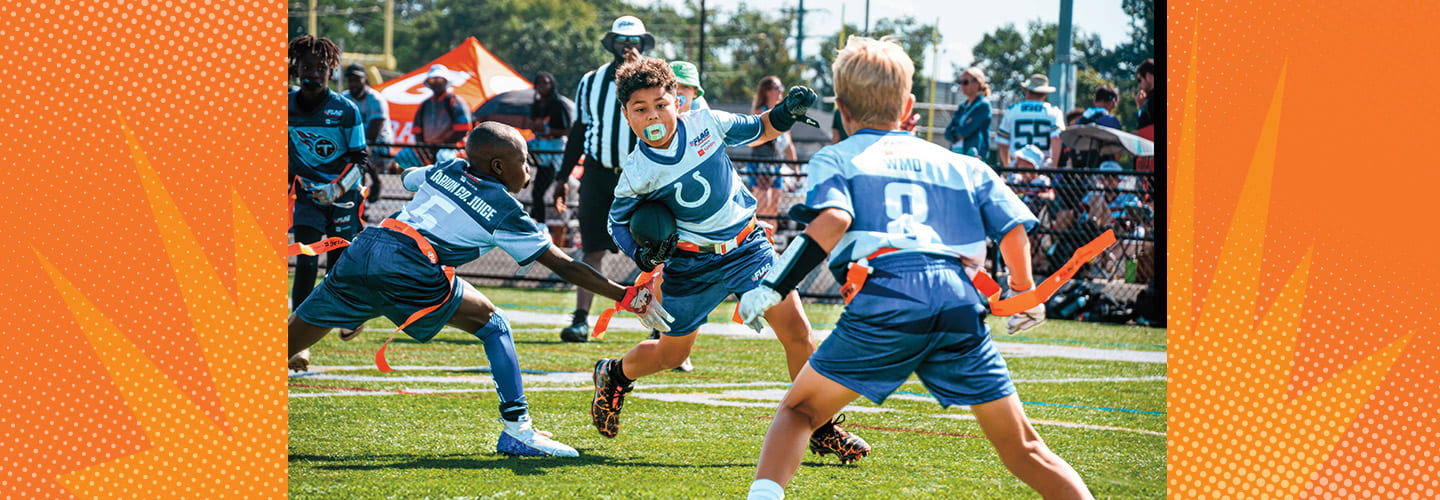It was the final play of the national championship game. All eyes were on 11-year-old quarterback Cora Hernandez. She scanned the field for an open teammate.
“I was really nervous,” Cora recalls. “Everybody’s depending on you to make the right throw at the right time.”
Then Cora fired a pass. The receiver caught it and sprinted past the defense into the end zone. Touchdown!
No one even tried to tackle the receiver. This is flag football, where tackling isn’t allowed. Instead, players pull a flag from opponents’ belts to stop a play.
Cora plays for the Pirate Bay Krewe from Tampa, Florida. They won the 11U title at the National Football League (NFL) FLAG Championships in July. They’re among the more than 2.4 million boys and girls 17 and under who play flag football in leagues across the United States.
As flag football rises in popularity, fewer kids play tackle now than they did a decade ago. What does this mean for football in America?
It was the final play of the national championship game. All eyes were on 11-year-old quarterback Cora Hernandez. She searched the field for an open teammate.
“I was really nervous,” Cora recalls. “Everybody’s depending on you to make the right throw at the right time.”
Then Cora fired a pass. The receiver caught it and ran past the defense into the end zone. Touchdown!
No one tried to tackle the receiver. This is flag football, where tackling isn’t allowed. Instead, players pull a flag from opponents’ belts to stop a play.
Cora is from Tampa, Florida. She plays for the Pirate Bay Krewe. They won the 11U title at the National Football League (NFL) FLAG Championships in July. More than 2.4 million boys and girls under 17 play flag football in leagues across the U.S. Cora and her teammates are among them.
Flag football is becoming very popular. More kids are playing it than tackle football. What does this mean for football in America?

